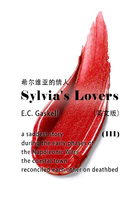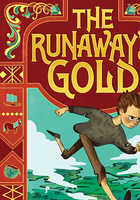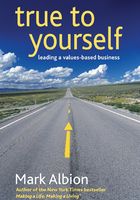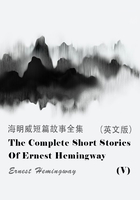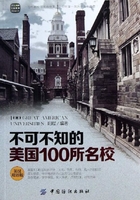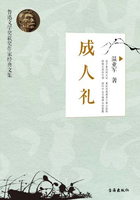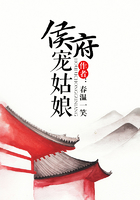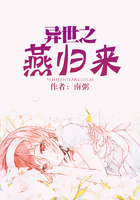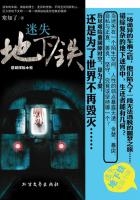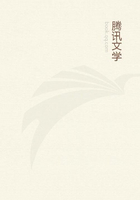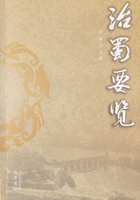The others experienced nothing like it even though they heard the same tales.
—Novalis
I READ A BOOK ONE DAY AND MY WHOLE LIFE WAS changed. Even on the first page I was so affected by the book's intensity I felt my body sever itself and pull away from the chair where I sat reading the book that lay before me on the table. But even though I felt my body dissociating, my entire being remained so concertedly at the table that the book worked its influence not only on my soul but on every aspect of my identity. It was such a powerful influence that the light surging from the pages illumined my face; its incandescence dazzled my intellect but also endowed it with brilliant lucidity. This was the kind of light within which I could recast myself; I could lose my way in this light; I already sensed in the light the shadows of an existence I had yet to know and embrace. I sat at the table, turning the pages, my mind barely aware that I was reading, and my whole life was changing as I read the new words on each new page. I felt so unprepared for everything that was to befall me, and so helpless, that after a while I moved my face away instinctively as if to protect myself from the power that surged from the pages. It was with dread that I became aware of the complete transformation of the world around me, and I was overtaken by a feeling of loneliness I had never before experienced—as if I had been stranded in a country where I knew neither the lay of the land nor the language and the customs.
I fastened onto the book even more intensely in the face of the helplessness brought on by that feeling of isolation. Nothing besides the book could reveal to me what was my necessary course of action, what it was that I might believe in, or observe, and what path my life was to take in the new country in which I found myself. I read on, turning the pages now as if I were reading a guidebook which would lead me through a strange and savage land. Help me, I felt like saying, help me find the new life, safe and unscathed by any mishap. Yet I knew the new life was built on words in the guidebook. I read it word for word, trying to find my path, but at the same time I was also imagining, to my own amazement, wonders upon wonders which would surely lead me astray.
The book lay on my table reflecting its light on my face, yet it seemed similar to the other familiar objects in the room. While I accepted with joy and wonder the possibility of a new life in the new world that lay before me, I was aware that the book which had changed my life so intensely was in fact something quite ordinary. My mind gradually opened its doors and windows to the wonders of the new world the words promised me, and yet I seemed to recall a chance encounter that had led me to the book. But the memory was no more than a superficial image, one that hadn't completely impressed itself on my consciousness. As I read on, a certain dread prompted me to reflect on the image: the new world the book revealed was so alien, so odd and astonishing that, in order to escape being totally immersed in this universe, I was anxious to sense anything related to the present.
What if I raised my eyes from the book and looked around at my room, my wardrobe, my bed, or glanced out the window, but did not find the world as I knew it? I was inhabited with this fear.
Minutes and pages followed one another, trains went by in the distance, I heard my mother leave and then return; I listened to the everyday roar of the city, the tinkle of the yogurt vendor's bell in the street, car engines, all the sounds familiar to me, as if I were hearing outlandish sounds. At first I thought there was a downpour outside, but it turned out to be the sound of some girls jumping rope. I thought it was beginning to clear up, but then there was the patter of raindrops on my window. I read the following page, the next one, and the ones after that; I saw light seeping through the threshold of the other life; I saw what I knew and what I didn't know; I saw my life, the path I assumed my own life would take …
The more I turned the pages, the more a world that I could have never imagined, or perceived, pervaded my being and took hold of my soul. All the things I had known or considered previously had now become trivial details, but things I had not been aware of before now emerged from their hiding places and sent me signals. Had I been asked to say what these were, it seemed I couldn't have given an answer while I still read on; I knew I was slowly making progress on a road that had no return, aware that my former interest in and curiosity for things were now closing behind me, but I was so excited and exhilarated by the new life that opened before me that all creation seemed worthy of my attention. I was shuddering and swinging my legs with the excitement of this insight when the wealth, the multiplicity, and the complexity of possibilities turned into a kind of terror.
In the light that surged from the book into my face, I was terrified to see shabby rooms, frenetic buses, bedraggled people, faint letters, lost towns, lost lives, phantoms. A journey was involved; it was always about a journey. I beheld a gaze that followed me on the journey, one that seemed to appear in the least expected places only to disappear, making itself sought all the more because it was so elusive, a tender gaze that had long been free of guilt and blame … I longed to become that gaze. I longed to exist in a world beheld by that gaze. I wanted it so much that I almost believed in my existence in that world. There was no necessity even to convince myself: I did in fact live there. Given that I lived there, the book must, of course, be about me. Someone had already imagined my ideas and put them down.
This led me to understand that the words and their meanings were, of necessity, dissimilar. From the beginning I had known the book had been written expressly for my benefit; it was not because these were portentous phrases and brilliant words that every word and every figure of speech pervaded my being, it was because I was under the impression that the book was about me. I could not fathom how I became subject to this feeling, but perhaps I did figure it out only to lose it trying to see my way through the murders, accidents, death, and missing signs with which the book was filled.
So it was that as I read my point of view was transformed by the book, and the book was transformed by my point of view. My dazzled eyes could no longer distinguish the world that existed within the book from the book that existed within the world. It was as if a singular world, a complete creation with all its colors and objects, were contained in the words that existed in the book; thus I could read into it with joy and wonder all the possibilities in my own mind. I began to understand that everything the book had initially whispered to me, then pounded into me, and eventually forced on me relentlessly had always been present, there, lying deep in my soul. The book had found the lost treasury that had been lying below the surface for ages and brought it up, and I felt I could appropriate for myself what I read in between the lines and the words. Somewhere in the final pages, I wanted to say I too had come up with the same ideas. It was much later, after I had been totally overtaken by the world the book described, that I actually saw death appear in the half-light before dawn, radiant as an angel. My own death.
I suddenly understood that my life had been enriched beyond my ken. Losing sight of the book was the only thing that frightened me then, but I was no longer as afraid of being unable to recognize what the book had told me of in the mundane objects around me in my room or in the street. I held the book between my hands and sniffed the smell of paper and ink that rose from the pages, just as I would do in my childhood when I'd finished reading a comic book from cover to cover. The smell was the same.
I rose from the table and pressed my forehead on the cool windowpane, as I used to do when I was a child, and I looked down into the street. Five hours ago, shortly after midday when I had placed the book on the table and begun reading, there had been a truck parked across the street which was now gone; wardrobes with mirrors, heavy tables, stands, boxes, pedestal lamps, et cetera, had been unloaded from the vehicle and a new family had moved into the vacant flat across the street. Since the curtains hadn't yet been put up, in the light of the bare bulb that lit the scene I could see the middle-aged parents, the son who was about my age, and their daughter; they were eating their evening meal in front of the TV. The girl's hair was light brown, the TV screen green.
I watched my new neighbors for a while; I liked watching them, perhaps because they were new or perhaps because watching them kept me safe. I didn't yet want to face the entire transformation of a familiar world now changed from top to bottom, but I was well aware that my room was no longer the same old room, nor the streets the same streets, my friends the same friends, my mother the same mother. They all implied a certain hostility, something dreadful and menacing that I could not quite name. I took a few steps away from the window but could not return to the book beckoning me back to the table. The object that had taken my life off its course was there on the table behind me, waiting. No matter how much I turned my back on it, the inception of everything was there in the pages of the book, and I could no longer put off embarking on that road.
Being cut off from my former life must have felt so horrifying for the moment that I too, like other people whose lives have been irretrievably altered by some disaster, wanted to comfort myself by assuming my life would resume its former course, that it was not something terrible that had befallen me, some accident or catastrophe. But the presence of the book standing open behind me was so palpable to my senses that I could not even imagine how my life could ever return to its old track.
It was in this state that I left my room when my mother called me to supper; I sat down like a novice unaccustomed to a new place, and tried making conversation. The TV was on; before us were platters with a stew of potato and chopped meat, cold braised leeks, a green salad, and apples. My mother brought up the new neighbors who were moving in across the street, my having sat down and, bravo, worked all afternoon, her shopping trip, the downpour, the evening news on TV, and the newscaster. I loved my mother; she was a good-looking woman who was gentle, temperate, and sympathetic; I felt guilty of having read a book that had estranged me from her world.
Had the book been written for everybody, I reasoned, life in the world could not continue to flow on this slowly and this carelessly. On the other hand, it wouldn't do for this rational student of engineering to think the book had been written specifically for him. Yet, if it hadn't been addressed to me, and to me alone, how could the world outside possibly go on being just what it was before? I was afraid even to think the book might be a mystery constructed for my sake alone. Later when my mother washed the dishes, I wanted to help her: her touch might restore me back to the present from the world into which I had projected myself.
"Don't bother, dear," she said, "I'll do them."
I watched TV for a while. Maybe I could get involved in that world, or else kick in the screen. But this was our TV set, the one we watched, a lamp of sorts, a kind of household deity. I put on my jacket and my street shoes.
"I'm going out," I said.
"What time will you get back?" my mother said. "Shall I wait up?"
"Don't, or you'll fall asleep in front of the TV again."
"Have you turned off the light in your room?"
So I ventured out into the precincts of my childhood where I had lived for twenty-two years, walking in the streets as if I were in the danger zone in some strange realm. Damp December air touched my face like a light breeze, making me think a few things had possibly penetrated through from the old world into this new world that I had entered, things which I should soon come across in the streets that constituted my life. I felt like running.
I walked briskly along unlighted sidewalks, avoiding hulking garbage cans and craters of mud, watching a new world materialize with each step I took. The plane and poplar trees that I'd known since my childhood still seemed the same planes and poplars, but they were bereft of their powers of association and memory. I observed the haggard trees, the familiar two-story houses, the grimy apartment buildings I had watched being built from the stage when they were mere mortar pits to the time when the roofs were raised and tiled, and where I played later as new playmates moved in; yet these images did not seem to be inalienable pieces of my life but photographs that I couldn't remember being taken: I recognized the shadows, the lighted windows, the trees in the yard, the lettering at the entrances, but the objects I recognized exerted no pull on my sensibilities. My old world was all around me, in the street across from me, here, there, everywhere, in the form of familiar grocery-store windows, streetlights at the Erenk?y Station Square, bakery ovens still baking ??rek, fruit crates that belonged to the greengrocer, pushcarts, the pastry shop called Life, dilapidated trucks, tarpaulins, tired and obscure faces. Part of my heart, where I carried the book surreptitiously as if it were a sin, had frozen itself against all the forms that were softly shimmering in the city lights. I wanted to run away from these well-known streets, away from the sadness of rain-drenched trees, the grocer's and the butcher's brightly lit signs, neon letters reflected on the asphalt and in the rain puddles. A light wind rose, droplets fell off the trees, and there was a roaring in my ears that made me decide the book must be a mystery that had been bestowed upon me. I was gripped with fear. I wanted to talk to other people.
At the Station Square, I made for the Youth Café, where some of my neighborhood friends still met in the evenings, playing cards, watching the soccer game, or just hanging out. Someone I knew from the university who put in time at his father's shoe store and another from the neighborhood who played amateur-league soccer were at the table in the back, chatting in the black-and-white light reflected off the TV screen. In front of them were newspapers that had fallen to pieces from being read too much, two tea glasses, cigarettes, and a bottle of beer bought at the grocery and concealed on the seat of a chair. I needed to have a long conversation, maybe one that went on for hours and hours, but I soon realized I couldn't talk to these two. I was gripped with a sorrow that brought tears into my eyes for a moment, but I pulled myself together arrogantly: I could only bare my soul to persons chosen from among those who already existed in the world implied by the book.
That was how I almost came to believe I had total possession of my future, but I also knew what possessed me at present was the book. Not only had the book permeated my being like a secret or a sin, it had dragged me into the kind of speechlessness one experiences in dreams. Where were the kindred spirits with whom I could talk? Where was the country in which I'd find the dream that spoke to my heart? Where were those who had also read the book? Where?
I walked across the train tracks, took back streets, trampled on yellow autumn leaves stuck to the pavement. A deep feeling of optimism surged up inside me. If only I could always walk like this, walking fast, without stopping, if only I could go on journeys, it seemed I'd reach the universe in the book. The glow of the new life I felt inside me existed in a faraway place, even in a land that was unattainable, but I sensed that as long as I was in motion, I was getting closer. I could at least leave my old life behind me.
When I got to the shore, I was astonished that the sea looked pitch-black. Why hadn't I ever noticed before that the Sea of Marmara was so dark, so stern, and so cruel at night? It was as if objects spoke a language which I was beginning to hear, even if just barely, in the temporal silence into which the book had lured me. For a moment I felt the weight of the gently swaying sea like the flash of my own intractable death that I'd felt inside me while reading the book, but it was not a sensation of "the end has come" brought on by actual death; it was more the curiosity and excitement of someone beginning a new life that animated me.
I walked up and down the beach. I used to come here with the kids in the neighborhood to look through the piles of stuff the sea deposited along the shore—the tin cans, plastic balls, bottles, plastic flip-flops, clothes pins, light bulbs, plastic dolls—searching for something, a magic talisman from some treasury, a shiny new article the use of which we couldn't begin to fathom. For a moment I sensed that if any old object from my old world were to be discovered and scrutinized now, from my new viewpoint enlightened by the book, it could be transformed into that magical piece children are always looking for. At the same time I was so besieged by the feeling that the book had isolated me from the world, I thought the dark sea would suddenly swell, pull me into itself, and swallow me. I was beset with anxiety and started walking briskly, not for the sake of observing the new world actualize with every step I took, but to be alone with the book in my room as soon as possible. I almost ran, already envisioning myself as someone who was created out of the light that emanated from the book. This tended to soothe me.
*
My father had had a good friend about his own age who had also worked for the State Railroads for many years and had even risen to the rank of inspector; he wrote articles in Rail magazine for railroad buffs. Besides that, he wrote and illustrated children's comics which were published in the series called Weekly Adventures for Children. There were many times when I ran home to lose myself in one of the comics like Peter and Pertev or Kamer Visits America that Uncle Railman R?fk? presented to me, but those children's books always came to an end. The last page said "The End" just like in the movies and, reading those six letters, not only did I come to the exit point of the country where I'd wanted to remain, I was once again painfully aware that the magic realm was just a place made up by Uncle Railman R?fk?.
In contrast, everything in the book I wanted to read again was true; and that's why I carried the book inside me and why the wet streets I tore through did not appear real but seemed like part of a boring homework assignment I'd been given as punishment. After all, the book revealed, so it seemed to me, the meaning of my existence.
I'd gone across the railroad tracks and was coming around the mosque when, just as I was about to step in a mud puddle, I leapt away, my foot slipped, and I stumbled and fell to one knee on the muddy pavement. I pulled myself up immediately and was about to go my way.
"Oh, my, you almost had a bad fall, my boy!" said a bearded old man who'd seen me take the spill. "You hurt?"
"Yes," I said. "My father died yesterday. We buried him today. He was a shitty guy; he drank, beat my mother, didn't want us around. I lived in Viran Ba? all those years."
Viran Ba? yet! Where in the world did I come up with this town called Viran Ba?? Perhaps the old guy was on to my lies, but momentarily I convinced myself that I was too clever by half. I couldn't tell if it was the lies I made up, or the book, or simply the old man's stupefied face that prompted me, but I kept telling myself: "Never fear, never fear! The world in the book is real!" But I was afraid.
Why?
I had heard of others who had read a book only to have their lives disintegrate. I'd read the account of someone who had read a book called Fundamental Principles of Philosophy; in total agreement with the book, which he read in one night, he joined the Revolutionary Proletarian Advance Guard the very next day, only to be nabbed three days later robbing a bank and end up doing time for the next ten years. I also knew about those who had stayed awake the whole night reading books such as Islam and the New Ethos or The Betrayal of Westernization, then immediately abandoned the tavern for the mosque, sat themselves on those ice-cold rugs doused with rosewater, and began preparing patiently for the next life which was not due for another fifty years. I had even met some who got carried away by books with titles like Love Sets You Free or Know Yourself, and although these people were the sort who were capable of believing in astrology, they too could say in all sincerity, "This book changed my life overnight!"
Actually, the frightening thing on my mind was not even the bathos of these scenarios: I was afraid of isolation. I was afraid of the sorts of things a fool like me might very well end up doing, such as misunderstanding the book, being shallow or, as the case may be, not shallow, being different, drowning in love, being privy to the mysteries of the universe but looking ridiculous all my life explaining the mystery to those who are not in the least interested, going to jail, being considered a crackpot, comprehending at last that the world is even cruder than I'd imagined, being unable to get pretty girls to love me. If the contents of the book were true, if life was indeed like what I read in the book, if such a world was possible, then it was impossible to understand why people needed to go to prayer, why they yakked their lives away at coffeehouses, why they had to sit in front of the TV set in the evening so as not to die of boredom, unwilling to close even their curtains all the way, just in case something halfway interesting in the street might also be watched, like a car speeding by, a horse neighing, or a drunk cutting loose.
I can't figure out how long it was before I realized I was standing in front of Uncle Railman R?fk?'s building and staring up into his second-floor flat through the half-open curtains. I had perhaps realized it without realizing it, and I was instinctively sending him my regards on the eve of my new life. There was an odd wish on my mind. I wanted to take a close look at the objects I'd seen in his house when my father and I had last paid him a visit. The canaries in the cage, the barometer on the wall, the meticulously framed pictures of railroad trains, the breakfront in which cordial sets, miniature railway cars, a silver candy dish, a conductor's punch, the railroad service medals were placed in one half of the showcase and maybe forty or fifty books in the other half, the unused samovar standing on top of it, the playing cards on the table … Through the half-open curtains, I could see the light emanating from the TV but not the set itself.
A surge of determination suddenly hit me out of nowhere, prompting me to get on top of the wall around the front yard and see not only the TV set Uncle Railman R?fk?'s widow Aunt Ratibe was watching but also her head. She was seated in her dead husband's easy chair at a forty-five-degree angle to the TV and had hunched her head between her shoulders, just the way my mother does when watching TV, but instead of knitting, this one was smoking up a storm.
Uncle Railman R?fk? had died a year ahead of my father, who went of a heart attack last year, but Uncle R?fk?'s death was not due to natural causes. He was on his way to the coffeehouse one evening, it seems, when he was fired on and killed; the killer was never caught; there was some talk of sexual jealousy, which my father never believed a word of during the last year of his life. The couple had never had any children.
*
Past midnight, long after my mother had gone to sleep, I sat bolt upright at the table staring at the book between my elbows and, gradually, zealously, and wholeheartedly, I put out of my mind everything that identified this neighborhood as my own—the lights that went out all over the neighborhood and the city, the sadness of the wet and empty streets, the cry of the boza vendor going around the block one last time, the premature cawing of a couple of crows, the patient clatter of the freight train on the tracks long after the last commuter train had gone by—and I gave myself over totally to the light that emanated from the book. So everything that constituted my life and expectations—lunches, movies, classmates, daily papers, soda pop, soccer games, desks, ferryboats, pretty girls, dreams of happiness, my future sweetheart, wife, office desk, mornings, breakfast, bus tickets, petty concerns, the statistics assignment that didn't get done, my old trousers, face, pajamas, night, magazines I masturbated to, my cigarettes, even my faithful bed which awaited me for that most reliable oblivion—all slipped my mind completely. And I found myself wandering in a land of light.

